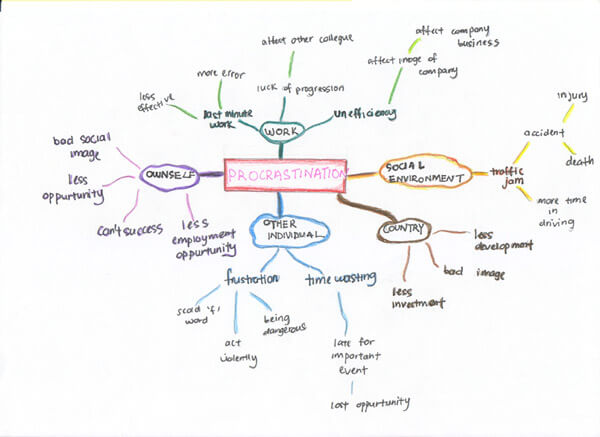Your palms are sweaty. You re-adjust your tie, waiting for the meeting to start.
When everyone arrives, you start your presentation. You are so worried about mispronouncing words that you barely speak loud enough for your audience to hear.
After your talk, you worry about whether people understood your message and if your boss is still considering you for that promotion.
Does this sound familiar? Perhaps you are stressed by conference calls in English, writing reports or mountains of email?
The fact that you are reading this means that you are working hard at improving your Business English skills, but there are 6 common mistakes that might be holding you back.
Are you making one of these crucial mistakes?

1. Use Tried and True Methods
There is a wealth of resources out there, so why stress yourself out and spend so much time trying to craft the perfect email or presentation when you can use a template?
Using a template doesn’t mean that you are being lazy. In fact, using what has worked for you and others in the past makes you more effective.
Instead of worrying about the format of your email or presentation, spend that time editing your work to make sure everything is grammatically correct.
Here’s an example to help with your emails. Feel free to copy and paste it into your next email:
| 1) State the purpose of the email. | Example 1: Hello Alice. I am writing to you because I need your help with typing up a press release. Example 2: Hello Bill. I would like to schedule that meeting to finalize our presentation to Mr. Smith. |
| 2) Provide details of what you need done. Make sure that you convey concisely all the details needed. To make it clearer for the reader, separate items with bullets, and write subheadings for different topics. | Example 1: Here are the steps I need you to take in order to complete this task: – Please read over the notes I have attached to this email. – Please expand upon these points into three paragraphs or less. – There are two people you need to talk to get quotes for this press release. The names are in the notes I attached. – Once completed, please email me the press release in a Word document. Example 2: I’ve included some times I am available below: Wednesday: 11:30-12:00 or 2:30-3:00 Thursday: 9:00-10:00 or 1:00-2:30 Friday: 10:00-11:00 Please pick a time that is most convenient for you. If none of these work, please let me know when you are free and I’ll try to arrange something. |
| 3) Write a conclusion for your message. This is where you write what you would like to happen. Review any actions and next steps required on the reader’s part, and any key points needed. | Example 1: Please email me the completed press release by next week Friday (May 24). We have a strict deadline so I would appreciate it if you could get this to me on time. Example 2: Please let me know by this afternoon so I can schedule the meeting. |
| 4) Include your email signature if your email program doesn’t automatically do it for you. Make sure that it includes all information such as your full name, contact information, and position in the company. | Example: Sincerely, Bob Smith CEO of ABC Company Inc. 123 Apple Road, New York City, USA Tel: (123) 456-7890 Email: [email protected] |
Example subject lines for your emails

Your email subject should include the topic and purpose of the email. The topic should come first, followed by purpose separated by two dashes.
- Responding to a request: When replying to a message, be as specific as possible about the action. The purpose should include the words “the [action or item] you requested”.
Example: “Company Logo – The edit you requested” - Seeking help or action: the purpose should include words such as “action requested”. Be as specific as possible when work should be completed.
Example: “Edit Company Logo – Action Requested: complete by 8/30” - Giving information: Since no action is required by the receiver, you can simply use the words “please review”, or “No action required”.
Example: “New Company Logo – No action required”
Template for your business presentations:

- Start your presentation with talking about who you are, the purpose of the presentation, the main areas you will be presenting, and why the subject is important to the audience.
- In the main part of your presentation, present points to support the main areas. Make sure you explain difficult concepts such as new terminology. To make it easier in you and your audience, try to explain concepts by comparing it to something familiar (such as an analogy) and present all statistics as visually as possible.
- For your conclusion, tie everything together by summarizing your main points and explain the importance of your presentation again, then ask them to take some sort of action.
- If time permits, have a question and answer period. You can use this as an opportunity to clarify or expand on points you may have missed.
For using English on the telephone, here is a slideshow with some template phrases you can use:
2. Focus on Effective Communication Skills
“The single biggest problem with communication is the illusion that it has taken place.”
– George Bernard Shaw
How you say something is just as important as what you say – if not more important!
Even if English isn’t your first language, it is still important to develop excellent communication skills in order to convey your message clearly.
Who would your clients rather listen to: someone who speaks softly and mispronounce most of the words during their presentation, or someone who stands tall, speaks confidently and fluently?
While it is important to learn new vocabulary and different expressions, you need to practice in order to master them.
Here are 5 ways you can improve your communication skills:
- Volunteer to do presentations or other activities where you have a chance to interact with English speaking colleagues.
- Actively participate in conference calls or meetings to try out new material you learned.
- When giving a presentation, practice what you have to say well in advance. Check your body language in front of a mirror. Practice speaking out loud. Make sure you understand how to pronounce every single word.
- Make eye contact and listen carefully when speaking with colleagues.
- Join Toastmasters or other organizations where you can practice speaking in front of others.
3. Ask for Feedback

No matter what stage you are in learning English, there is always room to improve. Asking for feedback from your teacher or colleagues will help you learn from your mistakes. Most people are more than happy to give you constructive feedback, including your peers.
If you are not comfortable asking for feedback, try asking a trusted friend first for some comments about a recent email you wrote, or ask them to listen to a presentation you will give.
Build up the courage to ask your teacher or your colleagues one-on-one until you feel comfortable asking questions in front of a group of people.
Consistently seeking feedback at work can be seen by your boss as a sign that you are ambitious and goal driven. This might help you score that promotion that you’ve always wanted!
4. Don’t Take Learning Too Seriously
“That is the way to learn the most, that when you are doing something with such enjoyment that you don’t notice that the time passes.”
– Albert Einstein, letter to his son
The more you enjoy and relax into the process of learning, the easier and more enjoyable it will be. You will be more motivated to learn and improve on what you already know.
Some tips:
- Incorporate English into your hobbies. For example, if you like building model airplanes, try to construct one using instructions in English. Join an English-speaking Facebook group. You could even read fashion magazines, or watch football shows in English.
- Learn to laugh at your own mistakes.
- Take some time to practice English by watching comedy shows
- Set boundaries, such as only studying during scheduled sessions and not bringing study materials with you on vacation.
5. The World is Your Classroom

There is a world of possibilities to learn English outside of a classroom. Learning English in the real world is a better way to be exposed constantly to new ideas and concepts.
Here are some ideas about other places where you can learn Business English:
- Read industry specific blogs and trade magazines
- Follow colleagues or other relevant people on Twitter (for example you can find us at @TJTaylorEnglish)
- Network at industry conferences
- Socialize with your international colleagues
6. Develop Effective Study Habits

Many Business English students haven’t stepped foot inside a classroom for a while, so it is natural to forget good study habits.
The more you understand and apply good study habits, the greater your chances of success.
What would you rather do: study for many hours and get frustrated at the lack of progress, or study effectively for a few hours and make real progress in your English?
Here are some tips on developing effective study habits:
- Create a space specifically for you to study: Make sure your space is used only for studying and has no distractions. Keep your desk clean and find a comfortable chair. Associating a space in your house that is solely for study helps you mentally prepare and focus.
- Schedule a time to study – and stick to it: Learning to prioritize and manage your time is crucial. Block off time in your agenda, phone or calendar so others can’t schedule meetings with you. If you communicate to them why this is important to you, they will be supportive and respect your time. Post your study schedule where everyone can see it so they know not to disturb you.
- Take frequent breaks: It is important to give your brain a rest so you don’t tire or stress yourself out from studying for long periods of time. Something as simple as stretching for 5 minutes, taking a walk or even eating a snack can help.
- Start with the most difficult topic: Harder materials usually mean that these are the areas you need to focus on. Also, your brain is still fresh at the beginning of your study session. Work towards easier material at the end.
- Take care of your health: A lack of sleep means lower concentration and and you will remember less of what you studied.
- Focus on quality over quantity: Studying more does not mean that you will learn more. Also, studying in small batches is more effective than sitting for long periods of time. Work on practicing your English for 5-10 minutes every day.
Ready to Get Started?

If you follow these 6 tips, you will start to notice a huge difference in the way you interact in English with colleagues and clients.
You will appear more confident in front of others and become more active and visible in your company. You may even gain some valuable professional relationships.
Remember, to put you on the path to success:
- Use templates for emails and presentations
- Work on perfecting your communication skills
- Constantly seek feedback
- Don’t take learning too seriously
- Learn English from the real world around you every day
- Develop good study habits
Which of these do you identify with?
Start by focusing on one of these mistakes and fix it today. Set some goals, and after 1 week review how you have corrected that mistake.
Start by making small goals for this week. Go ahead – open up your calendar now and schedule in a study time.
Which of these mistakes do you think is the most important? What other common mistakes would you include? Leave a comment below and let us know.
